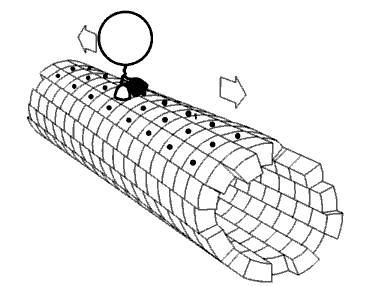
Imaging phosphodiesterase‐10a availability in cocaine use disorder with [11C]IMA107 and PET
Sign Up to like & getrecommendations! Published in 2019 at "Synapse"
DOI: 10.1002/syn.22070
Abstract: Phosphodiesterase‐10a (PDE10a) is located exclusively in medium spiny neurons (MSN). Rodent studies show an increase in striatal MSN spine density following exposure to cocaine. These increases in MSN spine density are suggested to underlie neurobiological… read more here.
Keywords: 11c ima107; cocaine use; phosphodiesterase 10a; cocaine ... See more keywords

Socioeconomic inequalities and Black/White disparities in US cocaine-involved overdose mortality risk
Sign Up to like & getrecommendations! Published in 2022 at "Social Psychiatry and Psychiatric Epidemiology"
DOI: 10.1007/s00127-022-02255-5
Abstract: This study examined whether socioeconomic inequalities account for Black/White disparities in: (a) the prevalence of potential risk factors for overdose among adults using cocaine; and (b) national mortality rates for cocaine-involved overdose. Data from 2162… read more here.
Keywords: cocaine involved; involved overdose; mortality; cocaine use ... See more keywords

Association between cognitive performance and SYT1-rs2251214 among women with cocaine use disorder
Sign Up to like & getrecommendations! Published in 2019 at "Journal of Neural Transmission"
DOI: 10.1007/s00702-019-02086-w
Abstract: The SNP rs2251214 of the SYT1 gene was recently associated with externalizing phenotypes, including ADHD and cocaine use disorder (CUD). Here, we investigated whether SYT1-rs2251214 could also be implicated with cognitive performance variations among women… read more here.
Keywords: cocaine use; cognitive performance; rs2251214; syt1 rs2251214 ... See more keywords

Reprint of The effect of N-acetylcysteine and working memory training on cocaine use, craving and inhibition in regular cocaine users: correspondence of lab assessments and Ecological Momentary Assessment.
Sign Up to like & getrecommendations! Published in 2018 at "Addictive behaviors"
DOI: 10.1016/j.addbeh.2018.03.023
Abstract: INTRODUCTION Effective treatment for cocaine use disorder should dampen hypersensitive cue-induced motivational processes and/or strengthen executive control. Using a randomized, double-blind, placebo-controlled intervention, the primary aim of this study was to investigate the effect of… read more here.
Keywords: use craving; use; cocaine use; inhibition ... See more keywords

Sociodemographic, neighborhood, psychosocial, and substance use correlates of cocaine use among Black adults: Findings from a pooled analysis of national data.
Sign Up to like & getrecommendations! Published in 2019 at "Addictive behaviors"
DOI: 10.1016/j.addbeh.2018.08.042
Abstract: OBJECTIVE Cocaine use (CU) is serious a public health issue affecting U.S. adults, including Blacks. Cocaine-related overdose deaths have also trended upwards among this population. However, there remains a lack of research on correlates of… read more here.
Keywords: use; cocaine use; black adults; among black ... See more keywords

Cocaine Use Reverses Striatal Plasticity Produced During Cocaine Seeking
Sign Up to like & getrecommendations! Published in 2017 at "Biological Psychiatry"
DOI: 10.1016/j.biopsych.2016.08.033
Abstract: BACKGROUND Relapse is a two-component process consisting of a highly motivated drug-seeking phase that, if successful, is followed by a drug-using phase resulting in temporary satiation. In rodents, cue-induced drug seeking requires transient synaptic potentiation… read more here.
Keywords: cocaine use; drug seeking; drug; cocaine ... See more keywords

Repetitive transcranial magnetic stimulation of the left dorsolateral prefrontal cortex may improve symptoms of anhedonia in individuals with cocaine use disorder: A pilot study
Sign Up to like & getrecommendations! Published in 2018 at "Brain Stimulation"
DOI: 10.1016/j.brs.2018.06.001
Abstract: Cocaine use disorder (CUD) is characterized by positive symptoms, such as craving, and negative affective states, all of which may drive drug taking and relapse. One prominent symptom that is part of the negative affective… read more here.
Keywords: cocaine use; repetitive transcranial; stimulation; use disorder ... See more keywords

An adaptive clinical trial design for cocaine use disorder: Extended-release amphetamine salts for early behavioral intervention non-responders.
Sign Up to like & getrecommendations! Published in 2020 at "Contemporary clinical trials"
DOI: 10.1016/j.cct.2020.106187
Abstract: BACKGROUND/AIMS Cocaine use disorder (CUD) persists as a major public health problem in the United States. Response to evidence-based behavioral treatment has been shown to be predicted by dopaminergic dysfunction. Amphetamine formulations modulate dopaminergic systems… read more here.
Keywords: intervention; cocaine use; amphetamine; trial ... See more keywords

Targeting white matter neuroprotection as a relapse prevention strategy for treatment of cocaine use disorder: Design of a mechanism-focused randomized clinical trial.
Sign Up to like & getrecommendations! Published in 2021 at "Contemporary clinical trials"
DOI: 10.1016/j.cct.2021.106603
Abstract: Cocaine use continues to be a significant public health problem with limited treatment options and no approved pharmacotherapies. Cognitive-behavioral therapy (CBT) remains the mainstay treatment for preventing relapse, however, people with chronic cocaine use display… read more here.
Keywords: use; cocaine use; treatment; relapse ... See more keywords

Alterations in functional brain networks associated with loss-chasing in gambling disorder and cocaine-use disorder.
Sign Up to like & getrecommendations! Published in 2017 at "Drug and alcohol dependence"
DOI: 10.1016/j.drugalcdep.2017.05.025
Abstract: BACKGROUND Continued, persistent gambling to recover accumulating losses, or 'loss-chasing', is a behavioral pattern linked particularly closely to gambling disorder (GD) but may reflect impaired decision-making processes relevant to drug addictions like cocaine-use disorder (CUD).… read more here.
Keywords: loss chasing; gambling disorder; cocaine use; disorder ... See more keywords

Health outcomes associated with crack-cocaine use: Systematic review and meta-analyses.
Sign Up to like & getrecommendations! Published in 2017 at "Drug and alcohol dependence"
DOI: 10.1016/j.drugalcdep.2017.08.036
Abstract: BACKGROUND Crack-cocaine use is prevalent largely in socio-economically marginalized populations in the Americas. Its use has been associated with diverse health outcomes, yet no recent or systematic reviews of these exist. METHODS A systematic review… read more here.
Keywords: cocaine; crack cocaine; cocaine use; health outcomes ... See more keywords